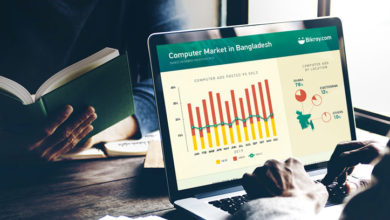How Climate Change Is Driving AC Demand in Bangladesh

Bangladesh is no stranger to hot summers, but climate change is making heat waves more frequent and intense. Urban areas like Dhaka and Chattogram are experiencing record-breaking temperatures, forcing families and businesses to turn to air conditioners (ACs) for comfort and survival. This rising demand is reshaping the local electronics market and creating new challenges for energy consumption.
Rising Temperatures and Heat Stress
Over the past decade, average summer temperatures in Bangladesh have been climbing steadily. Longer heat waves cause discomfort, health risks, and productivity losses. For many households, installing an AC is no longer a luxury but a necessity to cope with extreme heat.
Urbanization and Lifestyle Shifts
Rapid urbanization has added to the problem. Concrete-heavy cities trap heat, creating an “urban heat island” effect. Small apartments with limited ventilation make ACs the easiest solution. Middle-class families are increasingly willing to invest in cooling appliances to maintain comfort, especially for children and elderly family members.
Energy Consumption and Environmental Concerns
The surge in AC demand has a flip side: higher electricity consumption. ACs account for a significant share of household energy bills, straining the national grid during peak summer. Many models still use refrigerants that contribute to greenhouse gas emissions, worsening climate change. This creates a cycle where climate change drives AC demand, which in turn contributes to more climate stress.
The AC Market in Bangladesh
Bangladesh’s air conditioner market is growing rapidly, with local and international brands competing to offer energy-efficient solutions. Inverter technology, eco-friendly refrigerants, and smart AC systems are becoming popular. Retailers report strong seasonal spikes in sales, especially before Eid and during prolonged summer heat waves.
Pros & Cons of the AC Boom
Pros:
- Provides relief during extreme heat and protects health
- Increases productivity at workplaces and schools
- Expands the local electronics market and creates jobs
Cons:
- Raises electricity bills for households
- Adds pressure on the national grid during the summer
- Contributes to greenhouse gas emissions if older models are used
Conclusion
Climate change is reshaping how Bangladeshis live, work, and cool their homes. The rise in AC demand reflects the urgent need for comfort in extreme weather, but it also highlights the importance of sustainable solutions. For long-term balance, energy-efficient appliances and eco-friendly practices must go hand in hand with the growing need for cooling.
Frequently Asked Questions (FAQs)
1. Why is AC demand rising in Bangladesh?
Because of higher temperatures, longer heat waves, and urban heat effects.
2. Does AC usage worsen climate change?
Yes, through higher energy consumption and harmful refrigerants, but modern eco-friendly models reduce the impact.
3. Are inverter ACs better for students and families?
Yes, they save electricity and provide more consistent cooling.
4. How can households reduce AC costs?
By setting moderate temperatures, insulating rooms, and using fans with ACs.
5. Is AC ownership growing in rural Bangladesh?
Slowly, but demand is mostly concentrated in urban middle-class households.





